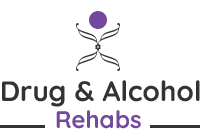Why the Center for Treatment and Recovery in Pawtucket, Rhode Island
Being a methadone clinic, the Center for Treatment and Recovery in Pawtucket, RI carefully tackles all kinds of opiate or opioid addictions. The facility helps to cure the problem of opioid addiction through the application of methadone in recovery. Methadone is a long-acting, synthetic opiate that is often used in Medication-Assisted Treatment and Medical Detox. Methadone binds to the same receptors in the brain as these opioids. Because it lasts longer, drug cravings are ameliorated while the patient undergoes therapy for better living. Methadone also serves to buffer and alleviate possible withdrawal symptoms resultant from abstaining from other opioids. This administration of methadone is not a one-size-fits-all technique as the dosage solely depends on the client. The opiate tolerance and metabolism level of the recovering individual is one important factor to note. Other medications the client may be on is another significant factor, as drug interference may become injurious to the individual.
The medication-assisted treatment offered at the Center for Treatment and Recovery in Pawtucket, RI consists of several addiction treatment services. These include individual and group counseling, continuous clinical evaluation, and relapse prevention. Others involve case management and substance abuse education. Individual and group therapies help clients in various ways. Identifying addiction triggers and learning techniques to avoid them constitute part of the therapies. Group therapy especially aids clients in redeveloping social skills and being part of an accountability group. Ongoing clinical evaluations are checkers put in place to sustain sobriety. Drug tests at the Center for Treatment and Recovery in Rhode Island are an example of these clinical evaluations. Relapse prevention skills are taught to clients during the recovery so they are better equipped to subsequently sustain sobriety. Case management serves to fulfill the needs of clients through communication whilst providing resources like housing, legal assistance, and financial relief. The aim of this is to promote the optimum care of clients as they recover. Substance abuse education highlights the negative consequences of misusing drugs while advocating proper drug use. The individual is then able to make informed and proper decisions concerning drug use and dosage of prescription drugs thereafter.

